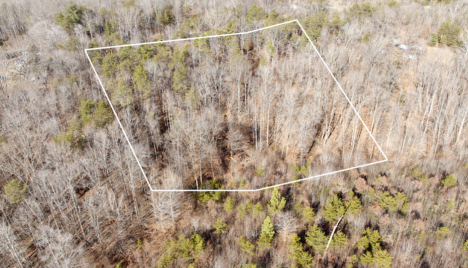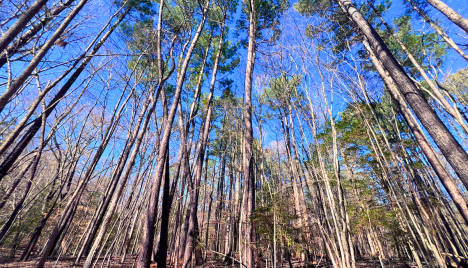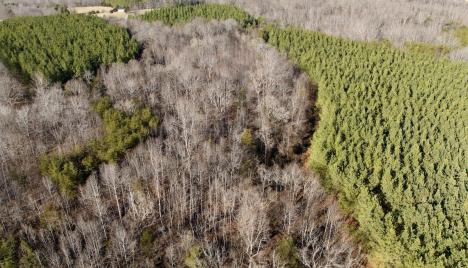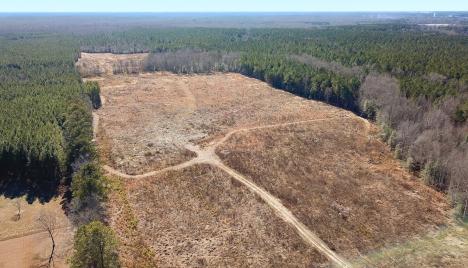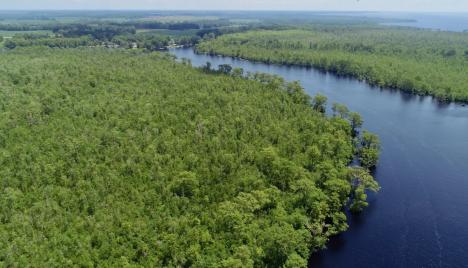As a landowner, you may ask yourself the question our network of rural land and property specialists is asking daily: “How much is my land worth?” With the rural land market experiencing unprecedented activity due to high demand from buyers wanting more space and a desire to escape, land prices have increased over the past several years. With several economic forces placing some downward pressure on that demand, such as rising interest rates, it’s likely there’s a significant amount of people wondering if it is time to sell to capitalize on the market before it turns.
While there is no guarantee that the market will do so, and there is a compelling case that Rural America will remain in high demand despite any economic pressures, let’s say for the sake of the argument that the market values for land will either stabilize or see downward trends. If your goal as a landowner was to maximize the value of your investment, is now not a time to, at a minimum, research what your property may be worth? We think so.
In doing so, you will want to understand some of the principles of property valuation that make it not a one-size-fits-all approach. Just like a fingerprint, every property is unique. It has its own set of positives and negatives, and just assuming that your property is worth what your neighbor Bobby and cousin Jimmy got for theirs may not hold. So understanding a few land valuation truths and working with a land specialist who can give a more accurate value than someone not versed in land valuation is the best approach to deciding whether it is time to sell your property or not.
CURRENT LAND VALUES
Land values are like a trip to the self-serve yogurt bar.
I bet you didn’t expect this analogy! At many yogurt bars, you pay based on the sum weight of the yogurt bowl once you’ve added all the yogurt and toppings your heart could desire. Essentially, you are paying for the value (items) you add to the empty cardboard bowl. With every scoop of yogurt and every topping you add, you drive the price up and, in the end, pay the market value for that finished product.
With land, you essentially have a base value-or “bare dirt value,” as we say in the land business – that is determined by the current market conditions and the location and/or highest and best use that property holds. This bare dirt value may be based on comparable sales, or if it is an income-producing property such as tillable farm ground or timberland, the bare dirt value may be based on soil fertility. A property with development potential will garner a higher price than a tract off the beaten path that will be used as a hunting getaway.
As you add value through both natural resource features such as timber, standing crops, and creeks, as well as man-made features such as a cabin or equipment shed, the price that property will garner, will likely increase. Timber value can vary greatly depending on the age, species, and overall timber volume on the property, as well as factors such as the proximity to timber mills and ease of access for future logging crews.
Cropland prices also experience a variety of price ranges based on the productivity of the soil and the yields a farmer can expect. Water features such as creeks, ponds, and rivers add value, especially in areas where water rights are an issue.
And, of course, the quality of hunting property offers a potential buyer is also a consideration. If a property has been well-managed for quality deer hunting and a new buyer can realistically walk in and immediately enjoy excellent hunting opportunities, that property will likely be more valuable than a property that has not been managed, and the new buyer must invest time and money to realize its potential.
REAL ESTATE AGENTS & PROPERTY PRICES
Real estate agents do not influence the market; sales do.
Another comment prevalent on social media is, “this brokerage is driving up the price of land!” While real estate agents can certainly suggest a list price or accept for marketing one the seller suggests, only sales can truly affect land values because that is how comparable sale information is derived.
Depending on who requests the appraisal, appraisers use comparable sale information when developing a property value for a buyer, seller, or lender. Area sales typically within the last 12 months-using similar properties (i.e., land, acreage size, attributes) are pulled together to formulate a value consistent with the market. Appraisers do not look at the listed values of properties still on the market or even “what neighbor Johnny got for his farm;” he is looking at sales that most closely mirror the property he is being asked to appraise.
Through their research, appraisers will have a strong idea of what attributes such as timber, water features, or structures will add to the bare dirt value of a property. Appraisers typically cut through the emotion and nostalgia of a property that may be present with the seller and get to the bottom of what a property should bring in the current market. Lenders typically require an appraisal on all properties on which they’ll be extending credit. Often, a transaction will fall apart because a property did not appraise for an amount equal to or exceeding the price agreed upon between buyer and seller.
WHAT IS TRUE LAND VALUE?
The true value of a property is what a buyer is willing to pay and what a seller is willing to accept.
The sellers’ list price is more times than not a starting line and not the final destination. While “full list price” offers are not uncommon for properly priced properties and are more prevalent in strong markets where demand is high, the realistic expectation is that a property should sell for 85-90% of the initial list price, so long as the initial list price is within current market boundaries.
It is the job of a quality land specialist to research land values of similar properties to suggest a list price to the seller that will both achieve the financial wishes of the seller and keep the property within the realistic boundaries of the current market conditions.
Properties placed on the market with unrealistic list prices often require several price reductions before receiving serious interest and can develop a stigma of being overpriced. By the land specialist doing their homework on the front end and the seller trusting that advice, the seller will stand a far better chance of their property selling for a fair price within a reasonable amount of time.
Productive cropland has been in demand over the past decade, with many Midwestern states, such as Iowa, seeing the price per acre values exceed $10,000 per acre on properties with Class A soils.
Working with a quality land specialist who can learn more about your goals and realistic expectations for a property is critical for a buyer. Understanding what you can afford and what features are personal priorities will allow a land specialist to narrow down your search to a few properties. Then the land real estate specialist will be able to discuss his opinion of the value of each to decide upon an offer price, should you wish to make one.
Just like an unrealistic list price can take a seller out of the market, an unrealistic initial offer can have a similar effect. A “lowball offer,” as we say in the industry, may tell a seller that you are not serious, and they may cut off communication with you and your land specialist. Making sure your offer is within a reasonable distance of the list price, and will allow room for negotiation without surpassing your budget, is important. Again, this is why a quality land specialist is important. Land specialists exist for a reason-because they truly understand the nuances that make land different than other types of real estate. Knowing the true values of these nuances can be the difference between a sold property and one that remains on the market.
HOW MUCH IS MY LAND WORTH?
Are you ready to discover the answer to the most common question …how much is my land worth? Begin the process of getting this question answered by visiting www.mossyoakproperties.com to find a land specialist in your area. Our network of over 100 Mossy Oak Properties brokerages is designed to be a trusted ally when it’s time to buy or sell rural real estate.



